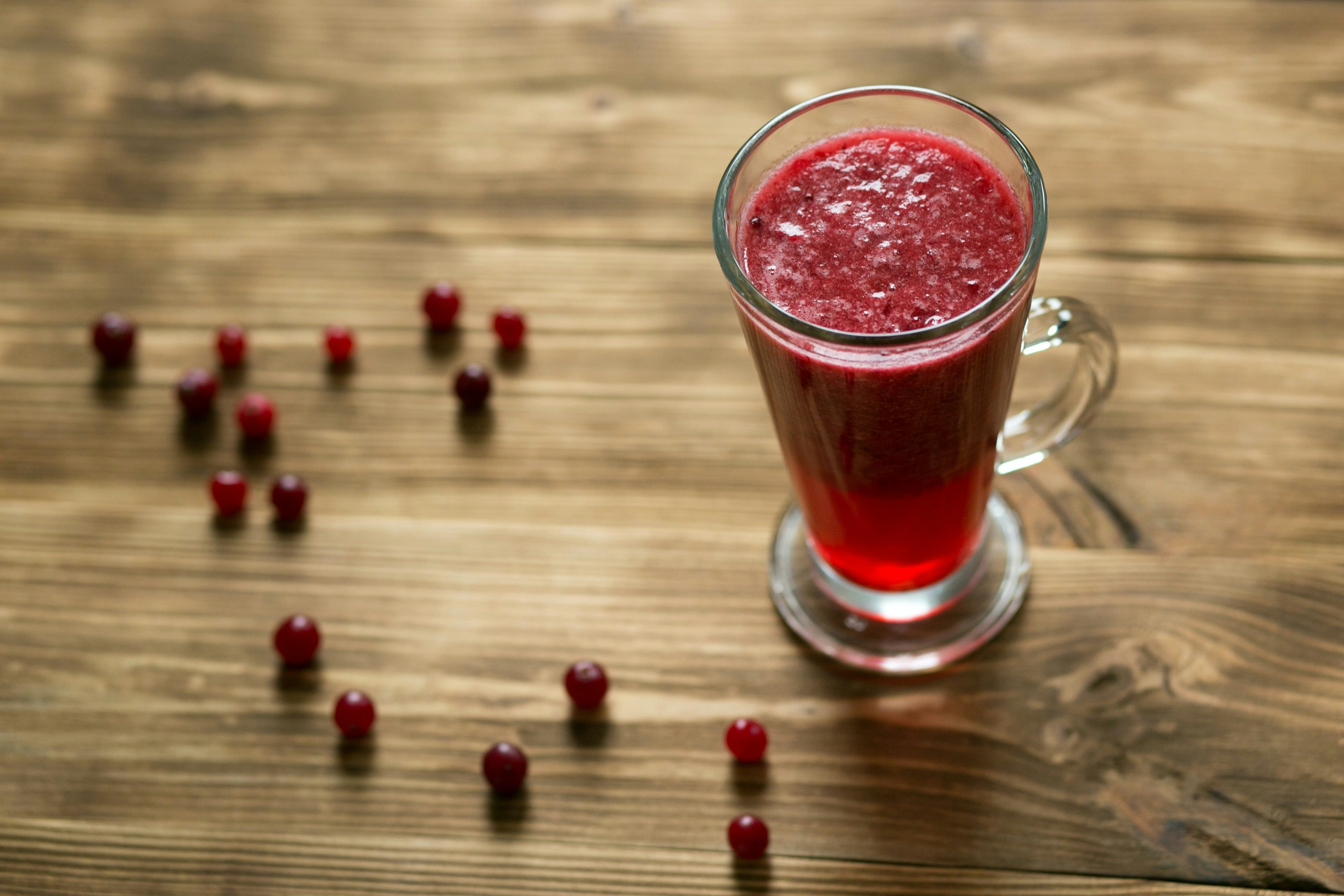Yes, cranberry juice does contain vitamin C, which is an essential nutrient that supports the immune system and other critical functions in the body.
How Much Vitamin C Does Cranberry Juice Have?
Cranberry juice is an excellent source of vitamin C and provides 23% of your recommended daily allowance in an 8-ounce serving.
The amount of vitamin C in cranberry juice can vary depending on the brand and the method of processing, but on average, an 8-ounce serving of cranberry juice cocktail contains around 24-30 mg of vitamin C.
Vitamin C plays many important roles in the body. A powerful antioxidant, Vitamin C helps stop free radicals from damaging cells and DNA in your body. To ensure you are getting the optimal amount of Vitamin C in your cranberry juice, you should consider how your juice was made and where you are sourcing it from.
Beware of the Sugar Content
It is important to note that many popular brands of cranberry juice cocktail contain added sugars or sugary juice concentrates, which can negatively impact overall health if consumed in excess.
Although a cup of unsweetened cranberry juice is rich in antioxidants, it contains approximately 30 grams of sugar. Similarly, a cup of sweetened, dried cranberries has around 26 grams of sugar.
Cranberry juice cocktails that are commonly available in grocery stores may contain as much sugar and sweeteners as soft drinks. It is healthier choice to opt for cranberry juice blends that are labeled as “100% juice” or “100% real juice”. Better yet, consider pressing your own juice at home.
However, even in such blends, cranberry juice may only constitute a small portion of the mixture. A popular brand's cranberry-pomegranate juice blend, for instance, comprises apple, grape, plum, pear, cranberry, and pomegranate juices, with no indication of the quantity of each juice on the label. Although a cup of this blend still contains 26 grams of sugar, it is much lower than blends with added sugar. If you want to know exactly what is going into your cranberry juice blend, why not try our Cranberry Apple Orange juice recipe instead?
Why is Cold Pressed Cranberry Juice Better?
Cold-pressed cranberry juice is made by pressing fresh cranberries to extract their juice without the use of heat, which can help to preserve more of the nutrients in the juice, including vitamin C.
In contrast, store-bought cranberry juice is typically pasteurized. According to the National Library of Medicines, the following happens during processing:
Vitamin C is a low thermal stability vitamin that oxidizes easily. Processing like pasteurization using elevated temperature causes loss of this vitamin. These losses can be from 20% to even 90% depending on the temperature level, the duration of the processing operation, and contact with oxygen.
Furthermore, recent studies have revealed that both high and low temperatures can have a negative impact on the stability of vitamin C in fruits and vegetables.
The study focused on six different types of produce, including lemons, cranberries, apples, red peppers, broccoli, and sweet potatoes. When these samples were frozen for a week at a temperature of -16°C, they lost around 30% of their vitamin C content. However, when cooked for just 15 minutes, the samples lost over 50% of their vitamin C content. These findings highlight the importance of proper storage and preparation techniques to preserve the nutritional value of fruits and vegetables.
How Does Pure, Unsweetened Cranberry Juice Taste?
Although pure cranberry juice has a naturally strong and sour taste, it is the best option for your health and nutrition intake.
The recommended type of cranberry juice is the pure and unsweetened variety, which is rich in vitamins C and E that function as antioxidants. However, it may not be readily available and can be expensive.
One suggested way to consume cranberry juice is by adding a tablespoon to water for added flavor and vitamins, or mixing it with sparkling water or soda to create a refreshing and tangy beverage. Want to spice it up even more? Consider mixing into a delicious fresh-pressed cocktail.



Comment